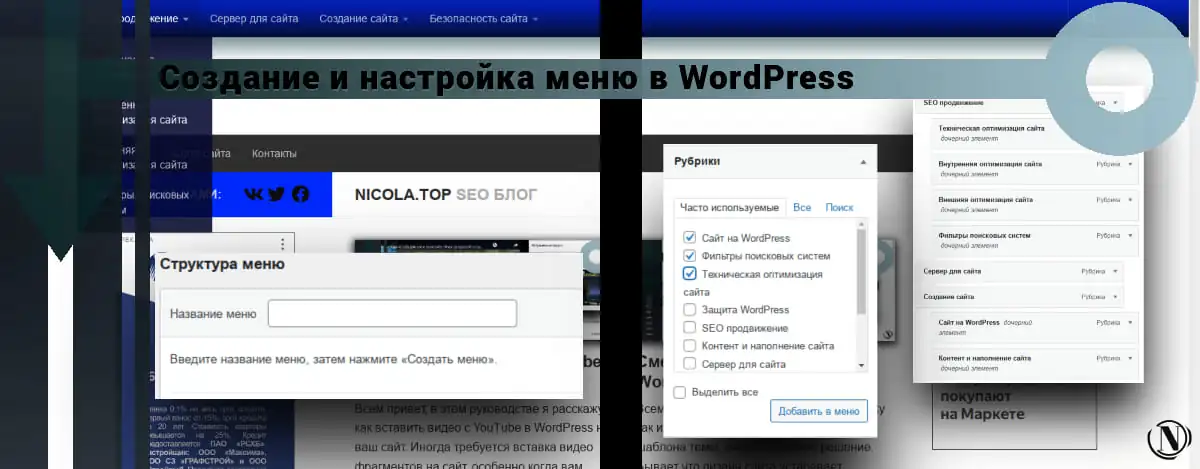ChatGPT is the future of journalism
 How is ChatGPT transforming journalism? ChatGPT is a technology that has become part of the journalistic process. In this article, we will look at how ChatGPT affects the future of journalism, what it is and how it works in this area, as well as analyze the benefits and risks of using this technology in journalism. We hope that after reading this article, you will be able to better understand how artificial intelligence is changing the media industry and what challenges journalists face using this technology.
How is ChatGPT transforming journalism? ChatGPT is a technology that has become part of the journalistic process. In this article, we will look at how ChatGPT affects the future of journalism, what it is and how it works in this area, as well as analyze the benefits and risks of using this technology in journalism. We hope that after reading this article, you will be able to better understand how artificial intelligence is changing the media industry and what challenges journalists face using this technology.
The content of the article:
- How ChatGPT speeds up content creation
- How ChatGPT changes content formats
- How ChatGPT personalizes content and analyzes data
- Ethical considerations when using ChatGPT in journalism
- The Future of Journalism with ChatGPT
- Conclusion
- FAQ
How ChatGPT speeds up content creation

How is ChatGPT transforming journalism? The main way is to speed up content creation. ChatGPT allows journalists to generate texts faster than handwriting due to the fact that it uses artificial intelligence and machine learning. This is useful for news outlets and other media organizations that need to respond quickly to events.
But this is not the only way that the neural network affects the future of journalism. Another benefit is the ability to innovate in content forms. With the help of a neural network, journalists create new content formats such as voice assistants, interactive stories, and even virtual reality.
But besides the benefits, there are also risks associated with the use of artificial intelligence in journalism.
- Firstly, this is the danger of creating incorrect information, since artificial intelligence can generate texts that do not correspond to reality.
- Secondly, there is a risk of losing jobs for journalists, as the neural network can replace some of their functions.
However, despite the risks, Chat GPT has already proved to be a cool tool in journalism. It simplifies the writing of articles and news, and also helps journalists collect and analyze information. Thanks to this, journalists work quickly, which is ahead of competitors in the information race.
How ChatGPT changes content formats

ChatGPT is a game-changing tool in journalism. It uses artificial intelligence to automate and speed up content creation and also helps journalists generate all sorts of content formats.
With ChatGPT, journalists can quickly and easily create articles and news stories using automatic text analysis and summarization, as well as automatic heading and subheading generation systems. In addition, the neural network is used to create content such as polls and quizzes, which helps to attract and retain readers.
The neural network also creates new content formats that were previously inaccessible to journalists. For example, ChatGPT generates images and videos based on text, which allows you to create visual content that matches the text of an article. It also allows journalists to experiment with new content formats and attract new readers.
How ChatGPT personalizes content and analyzes data
ChatGPT is not only a tool for creating content, but also for personalizing it. Using artificial intelligence and analysis of reader data, ChatGPT creates content that suits them. This means that journalists provide readers with content that is interesting and useful to them, which ultimately leads to an increase in the number of views and improve the reputation of the publication.
In addition, neural networks also help journalists collect and analyze data to improve the quality of content. Through this tool, journalists can better understand what their audience is interested in and how they can improve their content to reach more readers. Artificial intelligence analyzes data about which articles received the most views, which topics were popular, and how readers interacted with the content. This can help journalists adapt to audience needs and create content that deserves attention.
Ethical considerations when using ChatGPT in journalism
ChatGPT is a tool that is used to create both true and false news. This poses serious ethical issues for journalists who are responsible for producing and disseminating truthful information. However, if ChatGPT is used ethically and for the purpose of creating useful content, it can help journalists fight fake news and the spread of misinformation.
It is important to understand that artificial intelligence will not replace editorial control and should only be used as a tool to assist in writing articles. Journalists should be responsible for checking the facts and the information they publish. In addition, the use of a neural network must be transparent to readers in order to avoid situations where the content created with its help will be perceived as original material.
Journalists should also consider creating useful and engaging content that will lead to more views and traffic on the site. However, they must be ethical and not use Chat GPT to gain attention by creating sensational headlines or claims that are not true.
The Future of Journalism with ChatGPT
Chat GPT has the potential to change the way we receive news. Today, most news sites rely on live journalists to write and edit articles. However, with the help of neural networks it is possible to automate the process of writing articles. This will not only make the news production process faster and cheaper, but will also lead to an increase in fake news and misinformation.
The neural network can also change the profession of a journalist and the required skills for success in the future. Journalists will need to have data skills as the neural network collects and analyzes data to create accurate and personalized articles. In addition, journalists will need to be able to interact with and manage AI systems.
In the future, we expect trends and innovations thanks to ChatGPT. One possibility is to create useful articles using voice and text responses from a neural network. This can improve reader engagement and interaction with content. In addition, the GPT neural network can be used to create high-quality and relevant articles based on data, and not just on the opinions of journalists.
Conclusion
In conclusion, ChatGPT has the potential to transform journalism and improve the quality of the information product. However, there are also dangers associated with the possible use of a neural network to create fake news and spread misinformation. To use Chat GPT for the benefit of journalism, it is essential that you use it ethically.
However, the future of journalism with Chat GPT promises to be exciting. We look forward to new technologies, tools and methods that will help journalists create and disseminate quality information. The way we receive news will also change, and we look forward to new formats that will be exciting for the audience. It should be noted that artificial intelligence is one of the key factors that will determine the future of journalism in the coming years.
FAQ
Q: How does ChatGPT affect the future of journalism?
A: ChatGPT is a cool approach to content creation that will change the future of journalism. It will facilitate the work of journalists and automate the creation of content, which will allow them to devote more time to analyzing and verifying information. In addition, the neural network can be used to create informative and useful content, which will help to attract the audience.
Q: How does ChatGPT speed up content creation?
A: ChatGPT speeds up content creation as it uses artificial intelligence to generate text. This means that it creates content faster than a human. In addition, it processes large amounts of information in a short time and analyzes the data to create accurate content.
Q: How does ChatGPT change content formats?
A: ChatGPT is changing content formats as it creates not only text but also other types of content such as images, video, audio and graphics. This can help journalists create useful and diverse content that is better suited to their audiences.
Q: How does ChatGPT personalize content and analyze data?
A: ChatGPT can personalize content because it can analyze data about the user such as their preferences and online behavior. This will help journalists create content that will be useful to a specific audience. In addition, artificial intelligence can analyze data to create content that is accurate and up-to-date.
Q: What are the ethical considerations when using ChatGPT in journalism?
A: While ChatGPT is a useful tool for journalists, its use also raises ethical questions and demands accountability on the part of journalists. It is important to ensure that the content created does not contain misinformation or biased opinions. In addition, you need to be careful when using a neural network to create headlines and leads, so as not to mislead the reader or take them away from the actual content of the article. You must also ensure that the content created does not violate copyright or privacy rights. Journalists must be held accountable for their use of Chat GPT and ensure that the content created meets the standards of professional journalism.
Q: How can ChatGPT help journalists conduct investigations?
A: ChatGPT can help journalists conduct investigations as it can process large amounts of information and make connections between different events and people. In addition, it can be used to analyze social media to determine people's moods and opinions about a particular topic.
Q: How can ChatGPT help journalists create social media content?
A: ChatGPT can help journalists create content for social media because it can analyze user data and suggest content that will appeal to specific audiences. In addition, the neural network can generate hashtags that will help expand the reach of social media content.
Q: How can ChatGPT help journalists translate content into other languages?
A: ChatGPT can help journalists translate content into other languages as it has powerful machine translation capabilities. This allows journalists to quickly and easily translate content into other languages to reach a wider audience.
Q: How can ChatGPT help journalists create content for small language groups?
A: ChatGPT can help journalists create content for small language groups as it can generate content in a variety of languages, including those that may be less common. This will help journalists create content for audiences that may be excluded due to lack of content in their language.
Reading this article:
Thanks for reading: ✔️ SEO HELPER | NICOLA.TOP









